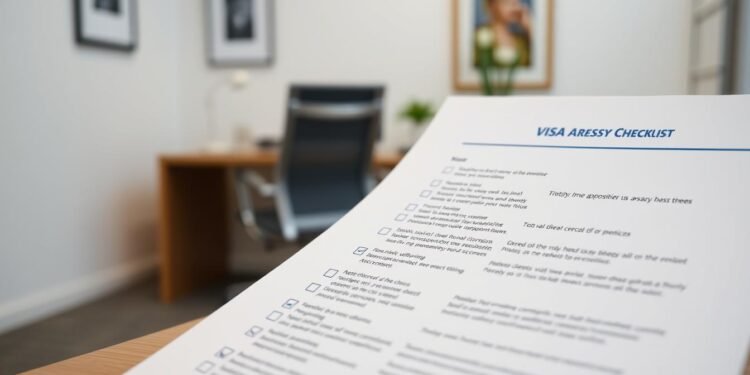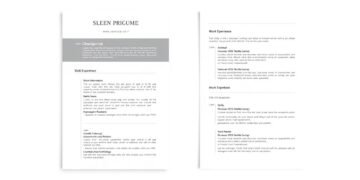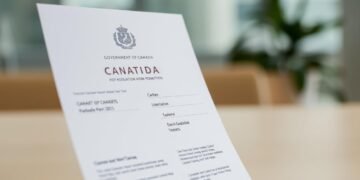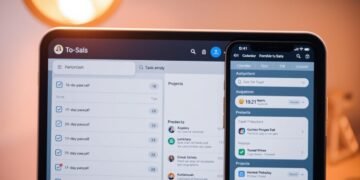Are you fully prepared for your upcoming interview? Many applicants underestimate the importance of proper preparation, leading to unnecessary delays or rejections. This guide is designed to help you navigate the process with confidence.
Understanding the requirements and steps can make a significant difference. From document verification to procedural updates, this article covers everything you need to know. Stay ahead of the curve and ensure a smooth experience.
Key Takeaways
- Learn the essential steps to prepare for your interview.
- Discover the latest updates for 2024/2025, including DS-160 changes.
- Identify common mistakes that can lead to delays or denials.
- Access official requirements from trusted sources.
- Streamline your preparation with a comprehensive checklist.
1. Preparing for Your Visa Appointment
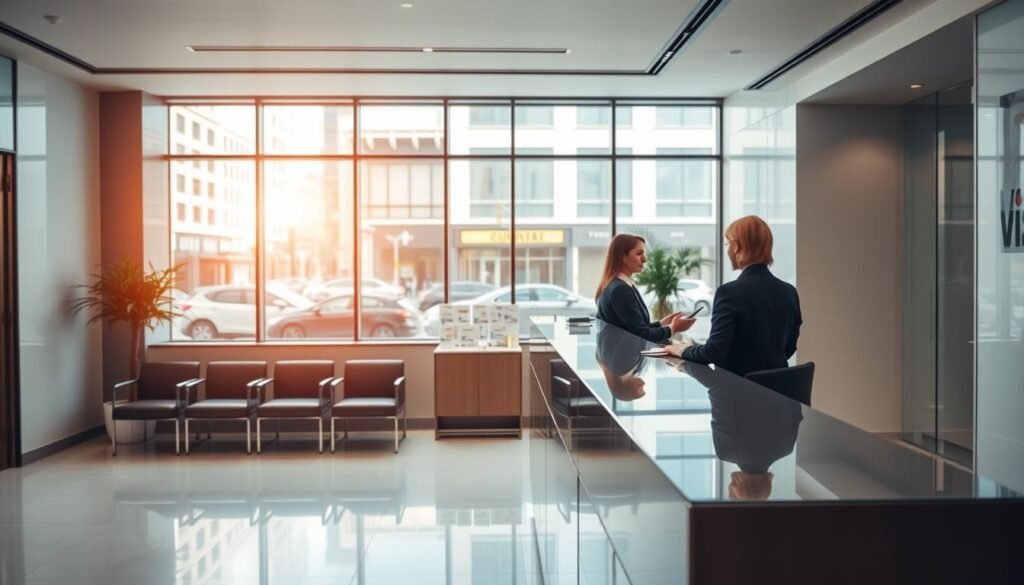
Proper preparation is key to a seamless process. Before your interview, there are essential steps to follow. These include scheduling a medical exam and registering for document return services. Each step ensures you meet all requirements and avoid delays.
Schedule and Complete a Medical Examination
A medical exam is often mandatory. It must be conducted by an approved physician. Results are typically valid for a limited time, so timing is crucial. Ensure all required tests are completed and results are ready before your interview.
Register for Courier Service and Pre-Interview Instructions
Using a visa courier service is essential for document return. Registration is mandatory and must be completed within 72 hours of receiving your interview notice. Save the confirmation page with the barcode for your interview day.
Be aware of regional differences in document return procedures. Address updates must match the visa courier service database. Combine this step with your final document verification to ensure accuracy.
Additionally, follow pre-interview instructions provided during embassy registration. These may include biometric data collection and other requirements specific to your location.
2. Documents Required for the Visa Interview
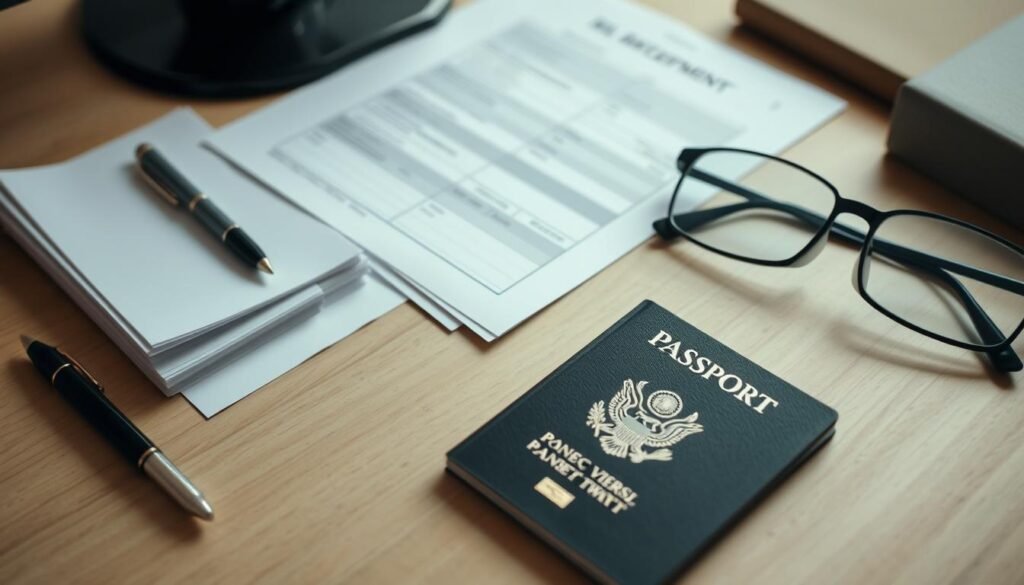
Gathering the right documents is crucial for a successful interview. Missing or incorrect paperwork can lead to delays or denials. This section outlines the essential materials you need to bring and how to handle specific requirements like police certificates and translations.
Essential Documents to Bring
Start by ensuring all required documents are up-to-date and organized. This includes your passport, confirmation page, and any supporting materials. Double-check the validity of your police certificate validity, as it must be issued within the last two years.
If you’ve turned 16 after submitting your initial application, you’ll need an updated certificate. Always bring the original and a copy to avoid complications. Proper preparation can save you time and stress during the interview.
Handling Police Certificates and Translations
Non-English documents must include certified translations. Use government-approved translators with official stamps to ensure accuracy. This is especially important for document translation of legal or official records.
Be prepared to explain any gaps in your police records or changes in marital status. Updated certificates should not be submitted beforehand—bring them directly to the interview. Following these steps will help you present a complete and accurate application.
3. Who Must Attend the Visa Interview
Certain individuals must attend, while others may qualify for exceptions. Understanding these rules ensures a smooth process and avoids unnecessary delays. Attendance requirements depend on your specific situation and the type of application you’re submitting.
Principal Applicant and Family Members
The principal applicant is always required to attend. This is the person whose name appears on the application. Family members, such as spouses and children, may also need to be present depending on their status and the type of application.
If you’re applying as a family, ensure everyone listed on the application is prepared. Missing a required attendee can lead to delays or rescheduling. Double-check the guidelines to confirm who must be present.
Exceptions and Special Cases
There are visa interview exceptions for certain situations. Military personnel or individuals with medical emergencies may qualify for exemptions. These cases require notarized forms and proper documentation, such as hospital certificates.
In embassy special cases, like the death of a petitioner, you’ll need to update your application. Submit a revised I-864 form and notify the embassy immediately. Always maintain a paper trail for rescheduling requests or changes in family composition.
Proxy attendance is rarely allowed. Power of attorney does not typically apply to interviews. If you cannot attend, notify the embassy within 72 hours and provide valid reasons. Proper communication ensures your case is handled efficiently.
4. Conclusion: Final Tips for a Smooth Visa Appointment
To ensure a hassle-free experience, follow these final steps before your interview. Arrive at least 45 minutes early to complete security screening. Be prepared to pay additional fees in cash, as electronic payments are not accepted.
Leave electronic devices at home, as they are prohibited inside the building. Practice common questions about your travel plans to feel confident during the interview. Dress professionally to make a positive impression.
Bring exact change for potential reciprocity fees. Understand how approval or denial notifications are communicated. Track your passport return through the registered courier service.
Avoid finalizing travel plans until you physically receive your approved document. These visa interview tips and embassy checklist steps will help you stay organized and prepared for a smooth process.
FAQ
What steps should I take before my visa interview?
Schedule and complete a medical examination. Register for courier services and review pre-interview instructions to ensure you’re fully prepared.
What documents are required for the visa interview?
Bring essential documents like your passport, application confirmation, and photos. Police certificates and translations, if needed, should also be included.
Who needs to attend the visa interview?
The principal applicant and family members must attend. Exceptions apply for special cases, such as minors or individuals with specific circumstances.
How do I handle police certificates for my visa application?
Obtain police certificates from all countries where you’ve lived. If they’re not in English, provide certified translations along with the originals.
Are there any exceptions for attending the visa interview?
Yes, minors under a certain age or individuals with medical conditions may be exempt. Check specific guidelines for your situation.

